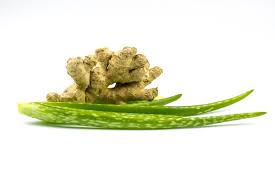Acidity, also known as acid reflux, is a common digestive issue that can cause discomfort, heartburn, and other symptoms. Proper management involves making mindful dietary choices, incorporating natural remedies, and adopting a healthy lifestyle. From eating small, frequent meals to practicing relaxation techniques, these do’s and don’ts can help you alleviate acidity and maintain optimal digestive health. Discover actionable tips to reduce acid reflux and improve your quality of life.
- Eat Small, Frequent Meals:
- Eating smaller, balanced meals throughout the day helps prevent overproduction of acid and reduces the load on your stomach.
- Drink Herbal Teas:
- Herbal teas like ginger, chamomile, and fennel tea can aid digestion and soothe the stomach lining. Avoid peppermint tea, as it can sometimes relax the esophageal sphincter and worsen symptoms.
- Include Alkaline Foods:
- Alkaline foods like bananas, melons, cucumbers, leafy greens, and oats help neutralize stomach acid.
- Stay Hydrated:
- Drink plenty of water throughout the day to flush out toxins and reduce acidity. However, avoid drinking large amounts during meals, as this can dilute stomach acids and impair digestion.
- Use Natural Remedies:
 Basil Leaves: Chew a few fresh basil leaves or steep them in hot water to soothe acid buildup.
Basil Leaves: Chew a few fresh basil leaves or steep them in hot water to soothe acid buildup.
Aloe Vera Juice: Drinking a small amount of pure aloe vera juice can help reduce inflammation.
Ginger: Adding ginger to meals or sipping ginger tea can help reduce acid production and calm the digestive tract.
- Practice Relaxation Techniques:
- Stress can trigger acidity, so incorporate relaxation techniques such as deep breathing exercises, meditation, or yoga into your routine.
- Sleep with Your Head Elevated:
- Use an extra pillow or elevate the head of your bed to prevent acid from flowing back up into the esophagus while you sleep.
Don’ts for Acidity Management:
- Avoid Acidic and Spicy Foods:
- Limit or avoid foods that trigger acidity, such as citrus fruits, tomatoes, spicy foods, and vinegar.
- Limit Caffeine and Carbonated Beverages:
- Caffeine (found in coffee, tea, and chocolate) and carbonated drinks can increase acid levels and relax the lower esophageal sphincter, worsening reflux.
- Reduce High-Fat Foods:
- Fatty and fried foods delay stomach emptying and relax the lower esophageal sphincter, leading to acid reflux. Avoid items like fried snacks, full-fat dairy, and fatty meats.
- Don’t Lie Down After Eating:
- Wait at least 2–3 hours after eating before lying down or sleeping to prevent acid from moving back up into the esophagus.
- Minimize Alcohol Consumption:
- Alcohol irritates the stomach lining and increases acid production, so reducing or eliminating alcohol can help.
- Avoid Smoking:
- Smoking can weaken the lower esophageal sphincter and increase acid production, exacerbating acidity issues.
- Limit Processed and Sugary Foods:
- Processed foods, especially those high in sugar, can lead to acidity and indigestion. Focus on whole, nutrient-dense foods.
- Avoid Overeating:
- Eating too much at once can overload the digestive system, leading to more acid production. Try to stop eating before you feel completely full.
- Avoid Tight Clothing:
- Tight-fitting clothes, especially around the waist, can put pressure on the abdomen, pushing stomach contents back up.
Lifestyle Tips:
- Regular Exercise: Engaging in gentle exercises like walking or yoga can improve digestion, but avoid intense exercise right after meals.
- Maintain a Healthy Weight: Excess weight can put pressure on the stomach, contributing to acid reflux, so aim for a balanced weight.
- Chew Food Thoroughly: Properly chewing food aids in digestion and helps reduce the workload on the stomach.
- Eat Dinner Early: Try to have your last meal at least 3 hours before bedtime to give your body enough time for digestion.
By following these do’s and don’ts, along with a healthy lifestyle, you can significantly reduce acidity issues and enjoy better digestive health. If symptoms persist or worsen, consulting a healthcare professional is recommended.
at Advik Homeopathy Clinic & Counselling Centre, we have treated and guided so many families. If you want to consult Dr Greeva mankad, kindly Book Your Appointment
